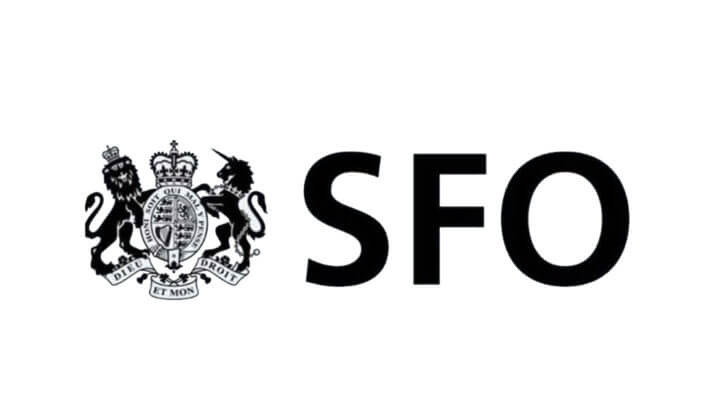Alex Swan considers the impact that Deferred Prosecution Agreements (DPA) can have upon individuals, as highlighted in the conclusion of the recent case brought by the SFO against Tesco Stores Ltd.
On 22 September 2014, Tesco plc announced to the market that it had overstated its income for the first half of the financial year by £250m due to the accelerated recognition of income and delayed accrual of costs. This set in motion a criminal investigation by the Serious Fraud Office (‘SFO’), which culminated in charges of fraud by abuse of position and false accounting being brought against Chris Bush (former Managing Director of Tesco’s UK business), Carl Rogberg (former Finance Director of Tesco’s UK business), and John Scouler (former Commercial Director of Food).
At a retrial (the first trial having been abandoned after some five months), Mr Bush and Mr Scouler were formally acquitted of the two charges they faced. This followed a ruling at the end of the prosecution case by the trial judge, Sir John Royce, that there was no case to answer for both defendants. The SFO appealed this decision to the Court of Appeal, which upheld Sir John Royce’s ruling and thereby ordered the acquittal of the two defendants. In light of this decision, and having had time to consider their position, the SFO ultimately decided to offer no evidence in the case of Mr Rogberg, who had been severed from the re-trial on the grounds of ill health.
However, before the original trial had commenced, Tesco Stores Ltd (‘TSL’) entered into a Deferred Prosecution Agreement (‘DPA’) with the SFO in April 2017. Although the existence of the DPA had been made public, publication of the DPA itself, the underlying Statement of Facts (‘SoF’), any report of the final DPA hearing, and the reasons for the decisions of the court at the preliminary and final DPA hearings (‘the DPA documents’) was postponed until the conclusion of the trial of the defendants because of the risk of prejudice that might be caused to those proceedings
The DPA documents were eventually published on 23 January 2019, when the SFO formally offered no evidence against Mr Rogberg, thereby bringing a conclusion to the SFO’s criminal proceedings. In striking contrast to the outcome of the criminal proceedings, the SoF explicitly stated that the defendants “were aware of and dishonestly perpetuated the misstatement [of Tesco’s financial position] thereby falsifying or concurring in the falsification of accounts or records made for an accounting purpose”, i.e. that they were guilty of false accounting. This perversity, rightly, led to much public comment as to how there could be such diametrically opposite outcomes, and indeed how the DPA and SoF, to which the acquitted defendants were not a party (much less had a say in), were left unaltered.
As a starting point, it is right to note that the defendants did in fact apply, after their acquittals, for the SoF to be redacted to remove their names. This was not to frustrate the publication of the DPA, but rather to amend a document which identified them as guilty which was, on its face, inconsistent with their acquittals. However, not only was this application opposed by the SFO and TSL on the grounds that the defendants did not have any locus, the judge with conduct of the DPA proceedings, Sir Brian Leveson PC, ruled that he did not have any jurisdiction within which to amend or modify the DPA or the SoF. This therefore resulted in the perversity described above: three defendants having been acquitted of any criminality (Sir John Royce having concluded that “…in certain crucial areas, one in particular, the prosecution case was so weak that it should not be left for a jury’s consideration”), yet nevertheless there being published a document stating that they had committed a criminal offence.
There are a number of reasons why a corporate such as TSL would wish to enter into a DPA, for example, to achieve expediency, certainty and reputation management. However, the rigidity of the statutory regime within which the DPA process is conducted and its ability to cause unfairness to individuals involved within the investigation has been highlighted by the TSL DPA. It is noteworthy that, as Sir Brian Leveson PC held, the statutory process as contained within the Crime and Courts Act 2013 not only meant that the acquitted defendants (who were affected by the DPA) could not apply to amend the DPA or the SoF, but further that the role of the judge with conduct of the DPA proceedings was in fact limited merely to enforcing its terms once it had been approved. One cannot help but wonder whether in their eagerness to put in place laws allowing corporates to enter into DPAs, Parliament chose to ignore (or perhaps simply gave no thought to) the rights of affected individuals.
For the acquitted defendants, they have the benefit of Sir John Royce’s ruling (a judge endorsed by the Court of Appeal as “one of the most experienced criminal judges in the country”), as upheld by a formidable bench of the Court Appeal, exposing the TSL SoF to be contradictory. But what of any other third parties in the future who may not be charged, yet are named and labelled as culpable in a DPA? It cannot be fair and just that their rights are ignored, or worse overridden by the State and a corporate’s desire for a DPA. Given the inherent unfairness of the DPA regime as highlighted by the TSL DPA, perhaps now is the time for Parliament to act and provide individuals in this position with an effective remedy.
If you’d like to discuss any of the issues raised in this article with one of our solicitors then please get in touch in the strictest confidence.

